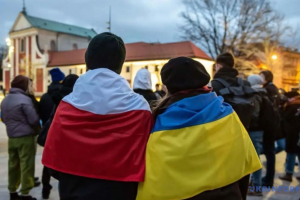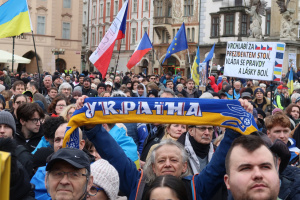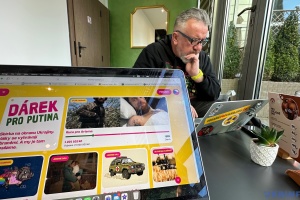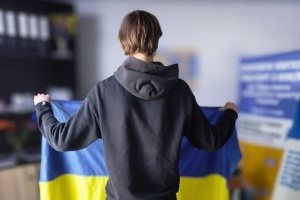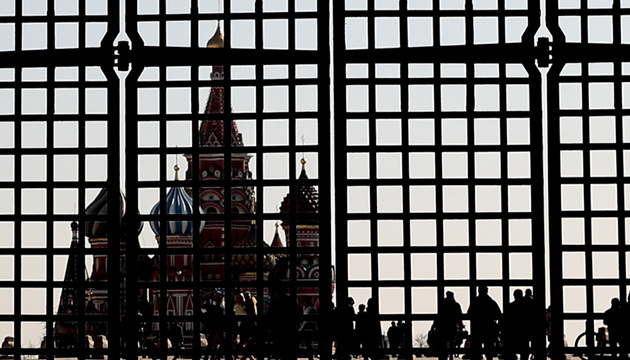
Twelve journalists among 120 Kremlin prisoners, rights activists stress
This was reported during a webinar entitled “Civic journalists are important! Non-freedom of speech in Crimea” by Tetiana Pechonchyk, chair of the ZMINA Human Rights Center, an Ukrinform correspondent wrote.
"We monitor and document persecution of journalists and public activists. We run information and advocacy campaigns for the release of our political prisoners. At the moment, we have 120 Ukrainian citizens who are held in the territory of the occupied Crimea or across the Russian Federation," Pechonchyk said.
She also explained why such a phenomenon as civic journalism arose, and stressed that it was a response to the total destruction of freedom of speech in Crimea.
"Human rights organizations have documented more than 500 cases of freedom of speech violations in the occupied Crimea, attacks on journalists, and a number of administrative and criminal cases initiated against journalists. At the onset of the occupation, there was a physical wave of aggression, when journalists would be detained, assaulted, snatched away, and their equipment – damaged. In addition, raids were conducted in editorial offices, journalists were interrogated, and a number of them were banned from crossing into Crimea,” Pechonchyk said.
She mentioned the names of journalists who had been subjected to threats and pressure, and also recalled that in 2014, all Ukrainian media were gone from the occupied Crimea. Currently, the situation of freedom of speech in Crimea is one of the worst in the world. This is not only according to Ukrainian experts, but also as per Freedom House, which annually assesses the state of freedom of speech across the world.
The head of the board of the ZMINA Human Rights Center noted that after the destruction of journalism in Crimea, there was no one there to cover the events in the occupied peninsula, so there arose a demand for civic journalism.
"Journalists from among regular people, or, as we say, civic journalists, took cameras and cellphones, and when something happened, tried to record these events, to tell people about them. And this has grown into a phenomenon that we call civic journalism, "Pechonchyk said.
Most of these people were united around the Crimean Solidarity initiative and those who fought for the release of political prisoners.
"At least 10 journalists are currently held in prisons, all of them – Crimean Tatars. In addition, two other journalists are in prison: Vladyslav Yesipenko, who worked for RFE/RL’s Crimea.Reality project, and Oleksiy Besarabov, who was an editor with the Black Sea Security magazine. That is, out of 120 political prisoners, twelve are journalists," Pechonchyk said.
She stressed that the names of imprisoned journalists should be high on the agenda, and the journalistic community should constantly draw public attention to the situation in Crimea, as the peninsula is currently in double information isolation due to the coronavirus epidemic.
Particular pressure on Russia should be exerted on international platforms, says Pechonchyk. These include write-a-letter marathons around the world, podcasts, campaigns for solidarity with political prisoners, and more.
Pechonchyk also said that any ordinary citizen can contribute to the release of political prisoners – by circulating the relevant information on various platforms, sharing news across social media, writing letters to political prisoners, and much more.
Former political prisoner and journalist Mykola Semena stressed during his address that the ZMINA Human Rights Center plays a huge role in supporting journalists who have been oppressed and persecuted.
As Ukrinform reported earlier, the National Union of Journalists of Ukraine hosted a webinar entitled “Civic journalists are important! Non-freedom of speech in Crimea,” where participants discussed a new phenomenon of civic journalism and its role in preserving freedom of speech in the occupied Crimea.
im

